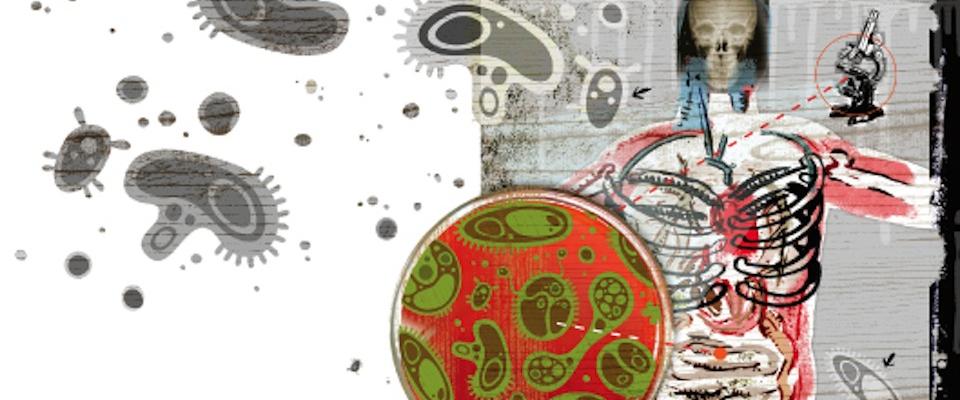In the pantheon of fad diet crazes, perhaps the most enduring is the grapefruit diet—over the years it has inspired countless overweight Americans to guzzle grapefruits and their bitter juice in hopes of shedding pounds. But although fad diets are typically synonymous with dubious science, new UC Berkeley research suggests the grapefruit diet might actually work, at least on tubby rodents with a taste for Brie and butter.
A new study in the peer-reviewed journal PLOS ONE found that mice fed a high-fat diet gained 18 percent less weight when they drank grapefruit juice compared with a control group of mice that drank water. Juice-drinking mice also showed improved levels of glucose, insulin, and a fat known as triacylglycerol over those who drank water.
The study also suggests that in high quantities, grapefruit juice might lower blood glucose levels as effectively as a commonly prescribed drug for Type 2 diabetes.
Dating back to the 1930s, and popularized in the 1970s as the Hollywood Diet, the grapefruit diet even inspired a parody from singer “Weird Al” Yankovic: “Grapefruit diet, can’t have another éclair, Grapefruit diet, I gotta decrease my derriere.” Historically, proponents have claimed that grapefruit contained a fat-burning enzyme or similar property.
But previous studies on the potential benefits of the grapefruit diet were often small, not well-controlled, and contradictory, according to the leaders of the research: Joseph Napoli, chair of Berkeley’s Nutritional Sciences and Toxicology department, and associate professor Andreas Stahl.
Their study was funded by the California Grapefruit Growers Cooperative, but the researchers emphasized the grapefruit growers had no influence over how the research was designed. Their funding, Napoli insists, “did not influence the outcome of the studies.”
To the contrary, “we were going in to debunk assumptions about grapefruit juice,” says Stahl, adding that the results were “really a surprise.” To confirm their findings, the researchers repeated the study several times.
They randomly divided the mice into six groups, including a control group that drank only water. For the others, clarified, pulp-free grapefruit juice was diluted with water at different concentrations, and sweetened with saccharin to offset grapefruit’s bitterness. Glucose and artificial sweeteners were added to the control group’s water so that it would match the calorie and saccharin content of the grapefruit juice.
One group was given naringin, a compound in grapefruit juice that other researchers had identified as a key agent in weight loss, and another group metformin, a glucose-lowering drug prescribed for Type 2 diabetes. The mice were fed a diet that was either 60 percent fat or 10 percent fat for 100 days.
At the end of the study period, the mice that ate the high-fat diet and drank diluted grapefruit juice gained less weight than their control counterparts, had a 13 to 17 percent decrease in blood glucose levels, and experienced a threefold decrease in insulin levels. High blood glucose, high insulin, and obesity contribute to metabolic syndrome, which increases a person’s risk of developing heart disease and diabetes.
In fact, the effects of grapefruit juice on blood glucose levels in mice were similar to those of the prescription drug metformin. The group of high-fat-diet mice that received the grapefruit compound naringin had lower blood glucose levels than the control group, but there was no effect on weight. The effects of grapefruit juice on the mice fed a low-fat diet were much less dramatic than on those fed a high-fat diet, with a two-fold decrease in insulin levels and no significant change in weight.
“We tried very hard to come up with the mechanism that caused weight loss,” says Stahl, but the researchers couldn’t find the molecular “smoking gun.” The mechanism could be a compound the researchers didn’t look at or a combination of compounds, says Napoli.
Health experts do have a caveat about individuals who are taking certain medications which don’t mix well with grapefruit juice or grapefruit. The federal Food and Drug Administration warns that grapefruit can increase the absorption of some drugs into the bloodstream, creating a potentially dangerous interaction.
The Berkeley researchers contend their experiments warrant further well-controlled trials—next time, with humans.


















